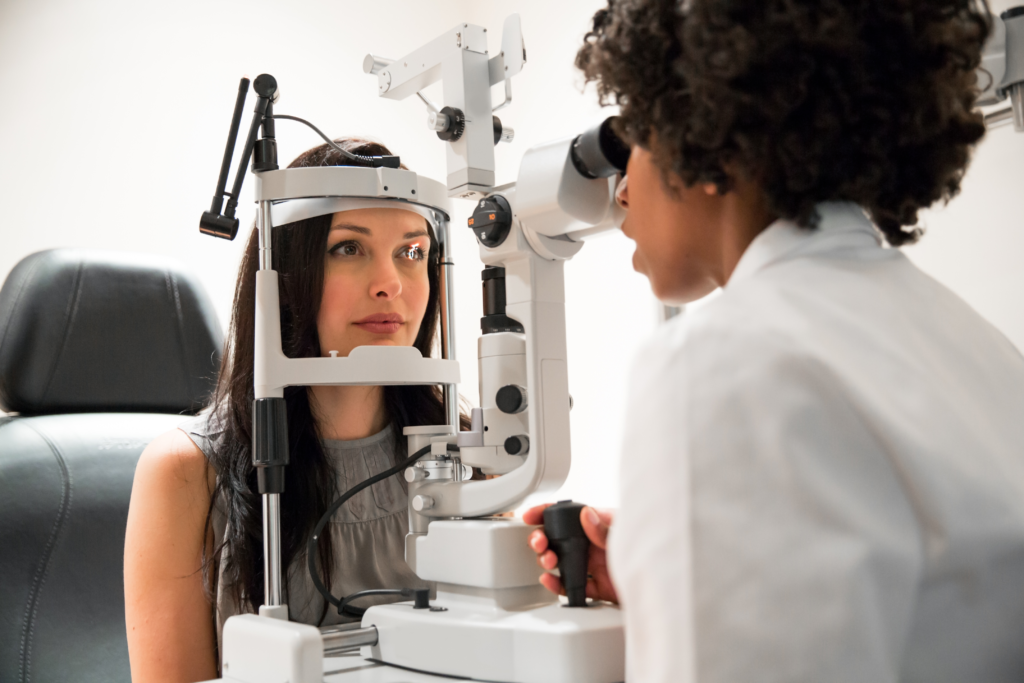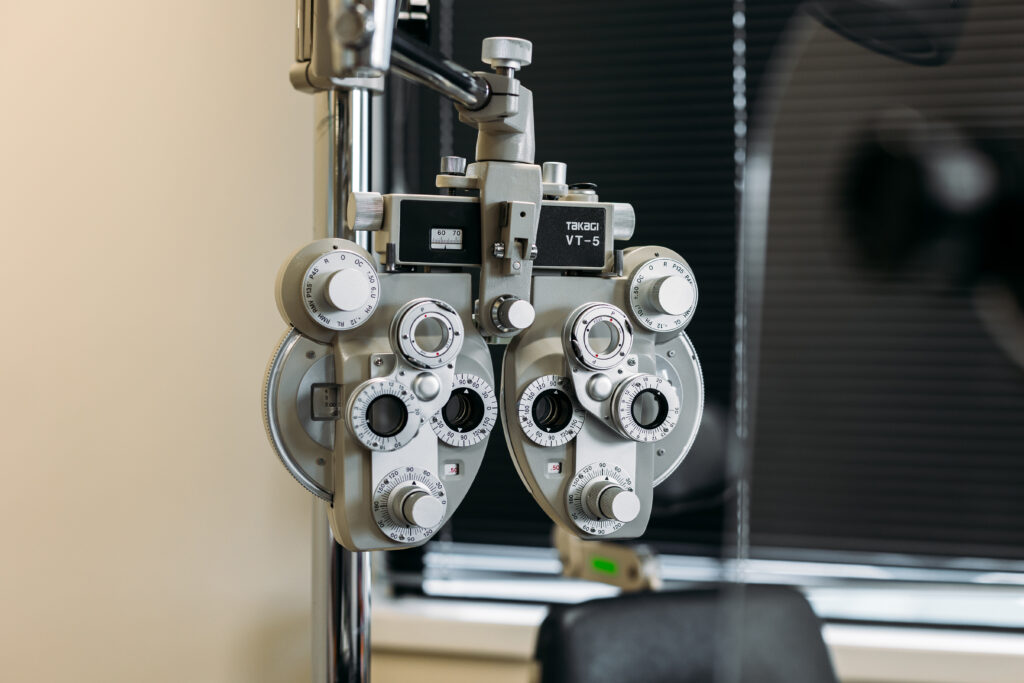
Wellington Eye Centre Optometrist
You have just made a substantial, positive investment in your eyesight by having laser vision correction. A decision you almost certainly didn’t take lightly. And now you have great vision without glasses! So that’s it right? Done and dusted – eyes fixed – no more eye exams!
Not quite. Having regular eye exams after refractive surgery is still very important.
Why do I need to have regular eye exams?
Just because you have corrected your vision, doesn’t mean you no longer have to take care of your eyes.
Like the rest of your body, your eyes are part of your overall health. There can be issues with your eyes and vision that go beyond what you had refractive surgery for. This needs to be evaluated on a regular basis by your community Optometrist. Not only do you want your eyes to stay healthy but your eyes can also be an indicator of health issues from other parts of your body.

What does an eye exam include?
An eye exam is not just testing your vision and prescribing glasses. Your Optometrist will look at the overall health of your eyes and check for common eye conditions.
There are several common eye conditions that you should be routinely screened and evaluated for. These are unrelated to refractive surgery. This is even more important if you have a family history of these eye diseases – diseases like glaucoma and macula degeneration.
Did you know some of the first signs of diseases like thyroid disease, autoimmune diseases, and diabetes can show up in a routine eye exam too?
You have good vision now – but anatomically your eyes are still the same size! (just with a tiny bit less cornea)
What this means is if you were short-sighted (myopic) before laser vision surgery, then anatomically you are still short-sighted. The laser eye surgery altered the thickness and curvature of your cornea to correct your vision, but the axial length of your eye remains the same. Anatomically short-sighted individuals, or people with long axial lengths, have an increased risk of macula disease (loss of central vision), retinal detachment, and glaucoma.
So for those people who were very short-sighted before surgery, more than 5 dioptres, it is even more important for you to keep having routine eye examinations, due to your increased risk of macula disease, retinal detachment, and glaucoma.
And while we are talking about short-sightedness…
Don’t forget about your children (or future children). The length of your eye can be a serious risk factor in getting central vision loss, retinal detachment, and glaucoma in old age. But don’t forget about your children!
You being short-sighted is a serious risk factor for your children to develop high levels of short-sightedness too. Luckily there are interventions available to slow the rate of short-sightedness developing in children and teenagers. This area of Optometry is called myopia management or myopia control.

So how often should a person have an eye exam?
If you are an adult with no personal or family history of eye diseases, aim to have a routine eye examination about every 2-3 years. If you are 55 years or older, aim for 2 years. And if you are 65 years or more then every year. Sadly age itself is a risk for developing eye diseases. The incidence of glaucoma in the 65-year-plus group is about 4%, in a European-based demographic – and possibly more than half of those people have no symptoms and might not have noticed any change in their vision! You really don’t want to find out when it’s too late to save or slow your rate of vision loss.
To note, children should get an eye exam soon after birth, just before going to primary school, and if all is well then about every 3-4 years after that.
So in conclusion – yes, regular eye exams are just as important post-refractive surgery as they were before refractive surgery!
If you are interested in having laser eye surgery then give us a call on 0800 733 327. Or fill out the book a free assessment and someone from our team will get back to you with more information. We’d love to hear from you!

Marijuana’s effect on the eyes

Festive Season and Your Eyes

Vitamins For Good Eye Health and Vision

Help my eyelid is twitching!

Restasis Eye Drops for the Treatment of Dry Eyes

What is PRK or Photorefractive Keratectomy?

Marijuana’s effect on the eyes

Can I have laser eye surgery if I’m pregnant?

What Can Go Wrong During Your Laser Eye Surgery?

